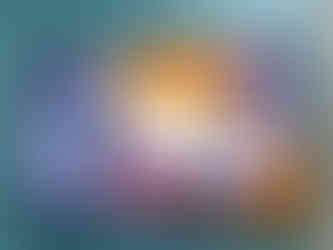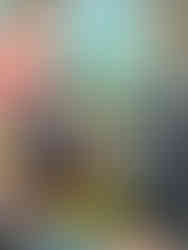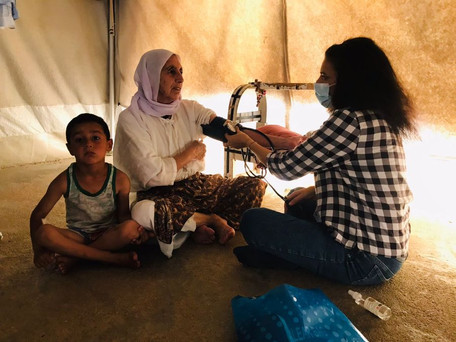Nit Ein, Nit Zwei
- Oct 12, 2021
- 4 min read

As the end of the Hebraic year is on my horizon, and with that the realization that we are way past the mid-way mark of 2021, I have been taking stock of the months that have passed since January.
We live life up close, with no distance, being continually “in the midst of” or “responding to” so it's the perfect time to slow down and see the larger impact, in numerical terms that we are making within our community.

Numbers are not everything but in our work, in the governmental structure to which we are accountable, they become much, they hold weight and value. Numbers can not reveal the complexity and the miraculousness of our lives. Numbers can not capture the success of a particular mission, the joy felt along with sheer exhaustion, the sense of community, the surge forward, or backwards as times have had it. Numbers can not express the redefining of identity, of paradise lost and paradise regained. They can not capture or express the rich tapestry of our lives with its joys and sorrows.
We, however, need numbers. For transparency, accountability to retain our NGO licenses, and to help and guide us in directing our resources within our campus and community.
Numbers, statistics and charts can in no way legitimize our presence in the region. They play, however, a valid and legitimate role in showing the community both here and abroad that we are undeniably a strong part of the local community, well woven into the fabric of life. Numbers indicate impact, and strengthen the belief in the necessity of maintaining our continuum of presence and involvement on the ground. Prior to 'our numbers', a gentle look at the Biblical principle of counting, where to count the population, one counted coins and not heads (Ex. 30. 12). God himself used similes when talking to the Patriarchs about their promised progeny. To Abraham, he said “as numerous as the stars” (Gen 15. 5), to Isaac as “the sand" (Hosea 2. 1) and to Jacob, “as the dust of the earth,” (Gen 28.14). Beautiful expressions versus numbers.
After the seemingly unwarranted census of the population taken by King David that ended with a plague killing 70,000 people, counting ceased to be a neutral act, becoming accompanied by fear, by angst, the act often accomplished by means of a surrogate. For those who will email me saying “But Saul directly counted his troops", there is a hint to the answer within the text, but that is not the scope of 'my numbers' today.
Such was the fear of counting numbers, that the Yiddish culture gave us the system of negative counting, Nit Ein, Nit Zwei. Not one, not two!! And now to our numbers, with the hope that they will reflect the statistical fruit of our life and work in the Kurdistan region of Iraq.
The Hope Centre, Shariya Camp
January 1. 2021 - June 30. 2021
Total educational courses: 118 Total beneficiaries: 4246 students, internally displaced people.
Freed to Focus Rehabilitation programme for students rescued from ISIS.
Total beneficiaries: 390
Total survivors who receive monthly financial support: 240
Psychological counselling: 152 patients
The Hope Medical Clinic: 1864 clients.
Recipients of naturopathic/ homeopathic treatments: 54
Distribution in Shariya camp, surrounding villages,
and within our student community.
Masks, clothes, hygienic products, food, household items, appliances, bedding, medical equipment, games, radios,
Recipients: Police, municipal workers, fire fighters, elderly, handicapped, sick, families, children and teens
Total recipients: 12,684
Sports and playground.
Total kids who have used our organized activities and sports events: 2500

Events: Exhibitions, musical recitals, celebrations, memorial, picnics.
Total: 95
Tent visits in Shariya camp and village:
Total families visited: 288
The Rainbow Zone, centre for Syrian youth.
Total students enrolled: 155
Kindergarten: 45 per semester
Teens: 15 per semester
So as to follow the Nit Ein, Nit Zwei tradition, I leave you to do the math. But it's a lot of heads.
We are in the silent and somber countdown to the closing out and starting of a Hebraic New Year, (or to be accurate, the Rabbinical one) number 5782. It was almost a year ago when we cried, “Remember us for life oh King who delights in life, and write us in the book of life for your sake, God of life.” We give thanks and are grateful to have been given another year where we have been able to do life, to live life amongst our two tribes, our Yezidi tribe and Syrian tribe in a period where both pandemic and threatening darkness have both hovered threatening to erase life. We have been granted another year to serve and to be light in this region.
Thank you for being such an integral part of our journey, part of these numbers, all of which represent lives, people on a journey of healing and restoration. Thank you for helping us to maintain our wonderful community, to maintain it as a source of hope and refuge for those around us. Thank you for helping us to live in the “Hineni”, “Here I am” mode, being alert, active, sensitive, fully present, translating moral vision into appropriate action. We could not do any of this without your presence in our lives. Thank you. I was just reading an article written by Rabbi Lord Jonathan Sacks ( z’l ) in Rosh HaShana of 2014, just months after the onset of the Yezidi Genocide. His words echo from numbers past into numbers present. “The freedom of the whole Middle East is at risk. Let us therefore approach the New Year with a real sense of human solidarity. Let us show, by the way we celebrate our faith, that God is to be found in life. The love of God is the love of life. May we be written in the book of life. May the day come when the righteous of all nations work together for the sake of freedom, peace and life. “
“Teach us to number our days, that we may gain a heart of wisdom.” Psalm 90. 12
To Life. To 5782





















































































Comments